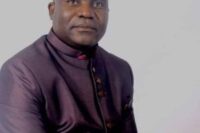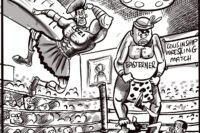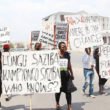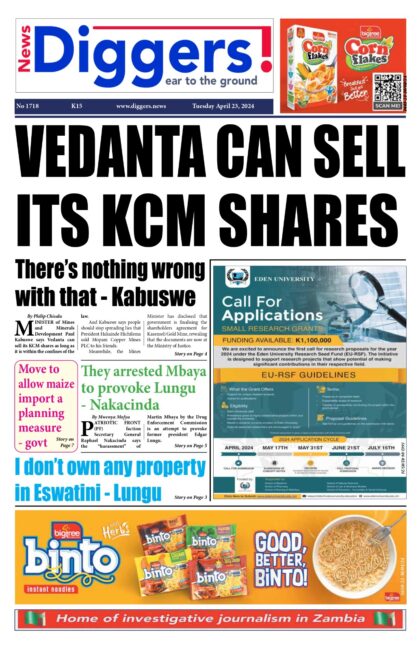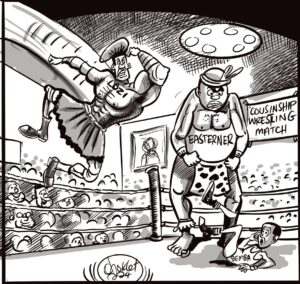NDC leader Chishimba Kambwili has applied for leave to commence Judicial Review in the Lusaka High Court against Lusaka magistrate Felix Kaoma’s decision to prohibit his lawyer Keith Mweemba from appearing before his court.
In a matter before magistrate Kaoma, Kambwili is facing a charge of defamation of the President following a complaint filed in the Lusaka Magistrates’ Court by New Congress Party leader Peter Chanda.
The said charge is in relation to Kambwili’s statement where he questioned President Edgar Lungu’s association with businessman Harry Valden Findlay, whom he allegedly accused of dealing in drugs.
Kambwili is now seeking leave to apply for judicial review before the Lusaka High Court and that the said leave should act as a stay of magistrate Kaoma’s decision to bar his lawyer, Mweemba, from appearing before his court until further order of the High Court.
He is seeking, among other reliefs, a declaration that magistrate Kaoma does not enjoy the powers to bar a legal practitioner from appearing before the court and further, a declaration that the magistrate acted in excess and want of jurisdiction when he purported to bar his lawyer from appearing before him.
Kambwili also wants a declaration that magistrate Kaoma did not act in accordance with the rules of natural justice in barring Mweemba from appearing before him, and an order that the case in which he is accused of defaming President Lungu be sent back to Chief Resident Magistrate Lameck Mwale for reallocation.
He wants an order of certiorari to remove into the High Court for purposes of quashing magistrate Kaoma’s decision to bar Mweemba and if leave to apply is granted, a direction that hearing of his application for judicial review be expedited.
In a notice containing a statement in support of ex-parte application for leave to apply for judicial review, Kambwili stated that on January 29, this year, magistrate Kaoma purported to bar his lawyer from appearing before him allegedly for contempt of court.
He added that this was after Mweemba walked out of the courtroom in protest of the court’s decision to proceed with trial despite medical grounds being furnished in support of a request for an adjournment in the matter.
Kambwili stated that magistrate Kaoma’s decision to bar Mweemba from appearing before him was illegal as he failed to indicate the authority he relied upon in barring the lawyer and therefore acted outside the confines of the powers he enjoys.
“The Magistrate Court is not bestowed with discretion by any law in Zambia to bar a legal practitioner from enjoying audience before it and it is in these circumstances not vested with jurisdiction to interfere with the applicant’s choice of legal representation. The court therefore imposed a punishment not founded on the rule of law. The Magistrate Court did not accord the applicant an opportunity to be heard and has breached key tenets of the rules of natural justice,” he stated.
Kambwili further stated that magistrate Kaoma’s decision to bar his lawyer was irrational, unreasonable and wholly disproportionate as the facts leading up to the decision did not merit it.
He added that the magistrate failed to maintain a proper balance between his power to impose punishment and the adverse effects which the decision has on the rights, liberties and interests of the applicants (Kambwili).
Kambwili stated that it was crystal clear that the barring of his lawyer was not proportionate to the alleged conduct attributable to him.
He added that the decision was extremely prejudicial to his rights and interests as he (Kambwili) was being punished without cause.
“The applicant will advance the proposition that the role that the honourable magistrate played in this matter falls in the realm of public officers and his decision is amenable to judicial review. We therefore invite this court to interfere with the decision of magistrate Felix Kaoma because it is altogether irrational and or unreasonable,” charged Kambwili.




